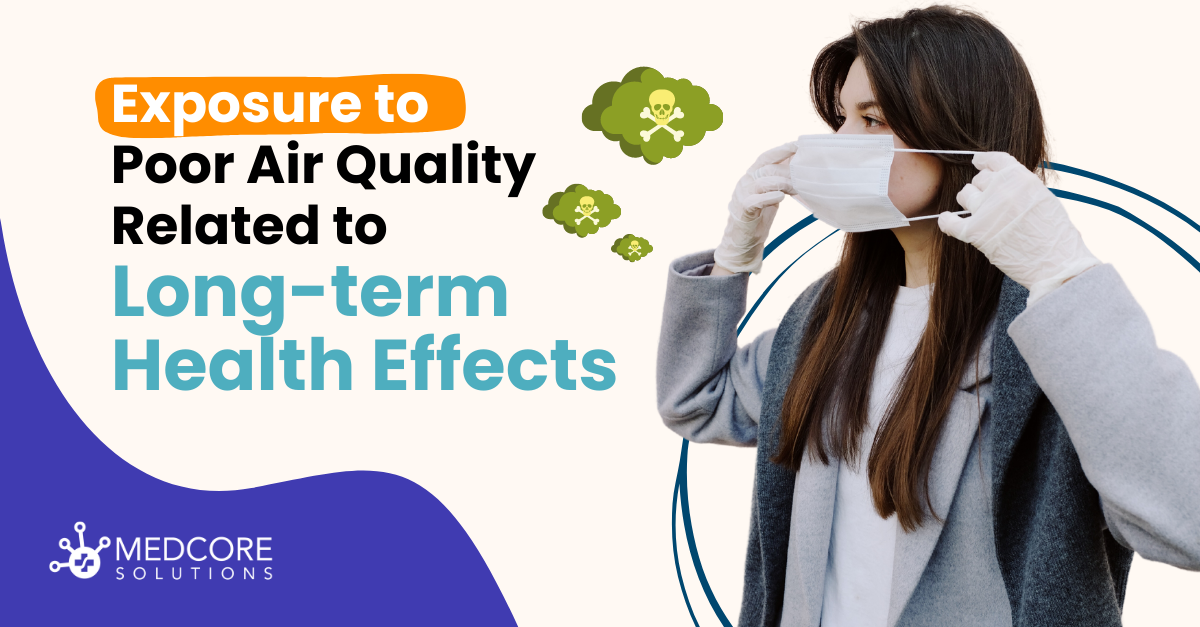Recently, exposure to poor air quality leads to increased hospitalization and long-term health effects. Wildfire smoke from Canada is a concern in the United States, most recently lowering hazy curtains across the Midwest and spreading into Illinois, Indiana, and Ohio as well as certain areas of West Virginia.
What is Causing This?
The air quality throughout the United States has been increasingly unhealthy over the last few weeks. This spike in the air quality index (AQI) is in part to the wildfires in Canada.Wildfires are common in Canada, but this season they started earlier than usual, which is bad for the environment. A few weeks ago, the smoke from Canada reached New York, turning the skies a yellowish-orange color. From there, the smoke moved across the country and is currently having an effect on the Midwest. Although it looks like the smoke is still moving southeast, only time will reveal the full impact of the fires.
There is an increased risk of harmful health impacts as AQI readings rise. Normally, the air quality is between 0 and 50, which is considered to be relatively great. 51 to 100 AQI is considered moderate. For sensitive groups, the AQI starts to become unhealthy when it is between 101 and 150. Any number between 151 and 200 indicates the likelihood that some members of the general population may experience health consequences; sensitive groups may have more severe health problems. This includes those with asthma and other respiratory diseases. If the AQI is between 201 and 300, everyone is at risk for adverse health outcomes. Additionally, the entire population is at a high risk of health hazards if the AQI is above 301.
The top air pollutants as defined by the US Environmental Protection Agency (EPA) include:
- Ozone at ground level.
- Particle pollution (sometimes referred to as particulate matter, specifically PM2.5 and PM10)
- Sulfur monoxide
- Carbon monoxide
- Nitrogen dioxide
How is this Impacting Our Health?
Even though air pollution is frequently undetectable, it can have a significant impact on people’s health. In addition to irritating the eyes, nose, and throat, poor air quality can shorten the breath, exacerbate asthma and other respiratory diseases, and have negative effects on the heart and cardiovascular system. More significant issues may arise if you breathe dirty air over an extended length of time. Also, children and older adults are at the most risk for adverse health effects.
The American Lung Association (ALA) highlights some of the long-term health risks associated with exposure to air pollutants, including the smoke from Canada including:
- Premature death
- Asthma attacks
- Cardiovascular disease
- Lung cancer
- Developmental delay and damage
These are only a few examples from the ALA, but it is obvious that the consequences on health are real. Hospitals are likely to experience an increase in patients with any of the dangers mentioned above as well as additional health problems when individuals are exposed to increasing air pollutants.
Advice from Experts
First of all, you should refrain from going outside in the early morning or late at night when there is a warning for bad air quality caused by wildfire smoke. If the air isn’t safe, it’s crucial to minimize your time outside. However, you should use a face mask to reduce your exposure to potentially harmful airborne particles if you choose to go outside. If someone breathes in the toxins in the air for an extended period of time during this period, health issues could develop. These particles may reach the bloodstream and cause harm if they circulate throughout the body.
If this problem is currently affecting your area, please remain indoors and stay safe!
References
AirNow.gov, U.S. EPA. (2023). AQI Basics| AirNow.gov. Retrieved from https://www.airnow.gov/aqi/aqi-basics/
American Lung Association. (2022, November 16). The terrible 10:Â air pollution’s top 10 health risks. Retrieved from https://www.lung.org/blog/air-pollutions-top-10-health-risks
Spare the air every day. Who’s at Risk. (2019). https://www.sparetheair.org/understanding-air-quality/air-pollutants-and-health-effects/whos-at-risk#:~:text=Poor%20air%20quality%20can%20irritate,can%20cause%20more%20serious%20problems.
WBNS – TV. 10tv.com. (2023, June 28). Experts say poor air quality could have long term health effects. Retrieved from https://www.10tv.com/article/news/health/poor-air-quality-could-have-long-term-health-effects/530-4b52993a-bda3-423d-94cb-824fbe8d5a4d

